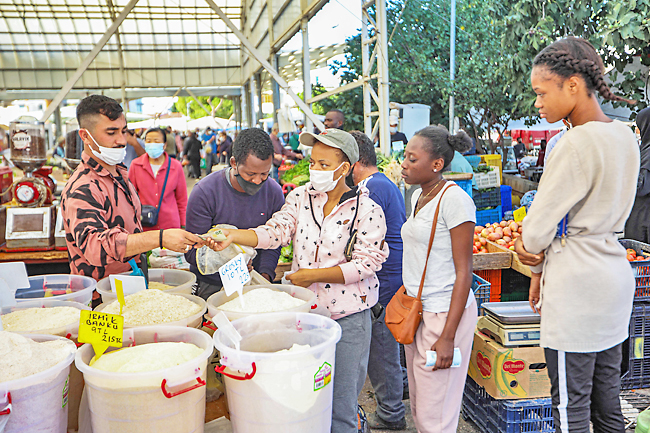NICOSIA (AFP) – In the breakaway statelet of northern Cyprus, people are grappling with a perfect economic storm – spiking global commodity prices, hobbled tourism and, above all, the fallout from Turkey’s financial crisis.
“Everything has become more expensive – bread, milk, water, electricity bills,” sighed Mehmet Cobe, a tailor in the self-declared Turkish Republic of Northern Cyprus (TRNC).
Covering the northern third of the Mediterranean island, the tiny territory declared itself a state in 1983, nine years after Turkey invaded in response to a coup engineered by Athens that sought to annex the island to Greece.
The so-called TRNC remains recognised only by Turkey, leaving the 300,000 residents highly dependent on the largesse – and fortunes – of Ankara.
On top of that, coronavirus restrictions have hit the crucial tourism industry which lures visitors with seaside resorts and casinos.
Turkey itself has been battered by a currency crisis that saw the lira lose nearly half its value against the dollar last year, as President Recep Tayyip Erdogan demanded interest rate cuts to spur growth, even while inflation shot up.

The lira’s slide, alongside surging global energy and food prices, sent inflation in northern Cyprus skyrocketting to 46 per cent last year.
“Two days after receiving my salary, I’m left with nothing,” said a hotel worker who asked not to be named.
Despite holding down jobs at two separate hotels, the TRY6,000 she brings home each month is now equivalent to barely USD430, the worker said, leaving her dependent financially on her grown-up children.
TRNC prime minister Faiz Sucuoglu said last week the economy was a “priority” for his government, a coalition of right-wing nationalists who want outright secession from Cyprus.
The plunging lira, soaring inflation and an unemployment rate of 10 per cent have all fed into a disastrous economic performance, said head of the TRNC’s chamber of trade and industry Turgay Deniz.
After the economy contracted by 16.2 per cent in 2020, output last year “continued to fall”, Deniz said, drawing on estimates for 2021 that are yet to be finalised.
The dependence of northern Cyprus on Turkey is stark, because no other country recognises the breakaway entity.
“The TRNC can only sign agreements with Turkey,” which funds 15 per cent of the budget, said Deniz. Other sources indicate that the statelet depends on Ankara for up to a third of its spending.
Northern Cyprus is an “aid-dependent economy”, said Mustafa Besim, an economist at the publicly funded Eastern Mediterranean University in Famagusta.
“The only source of external funding for Turkish Cypriots is financial support from Turkey,” which provides an annual package, he added.
But only half of the amount promised for 2021 was delivered, owing to “the economic problems in Turkey”, leaving infrastructure projects and businesses short of money they had counted on, Besim said.
The TRNC has watched on powerlessly from the sidelines as Turkey’s central bank has taken policy decisions that put the lira into freefall.
The Turkish currency “is a parameter that we can’t control”, said Managing Director of freight transport company Armen Shipping Vargin Varer.
It “is controlled by the Turkish government – or even the Turkish president, we should say”, he said.
The plunge in the value of the lira has made imports, upon which the TRNC is enormously dependent, much more expensive.
Looking to the future, Varer pointed at one potential bright spot: the tourism industry, which accounted for more than a fifth of northern Cyprus’s economic output before the pandemic.
The rising plausibility of “free travel this summer”, if the pandemic eases off, should pull in foreign tourists looking for cheap holidays, he said.



















































